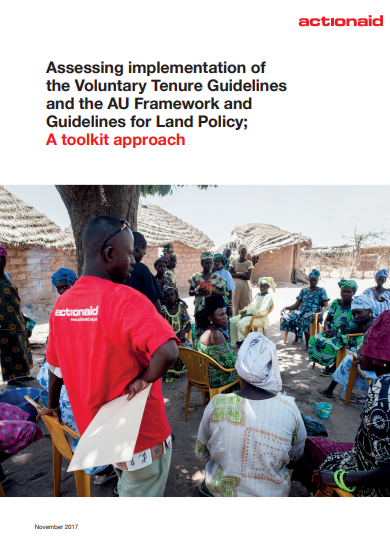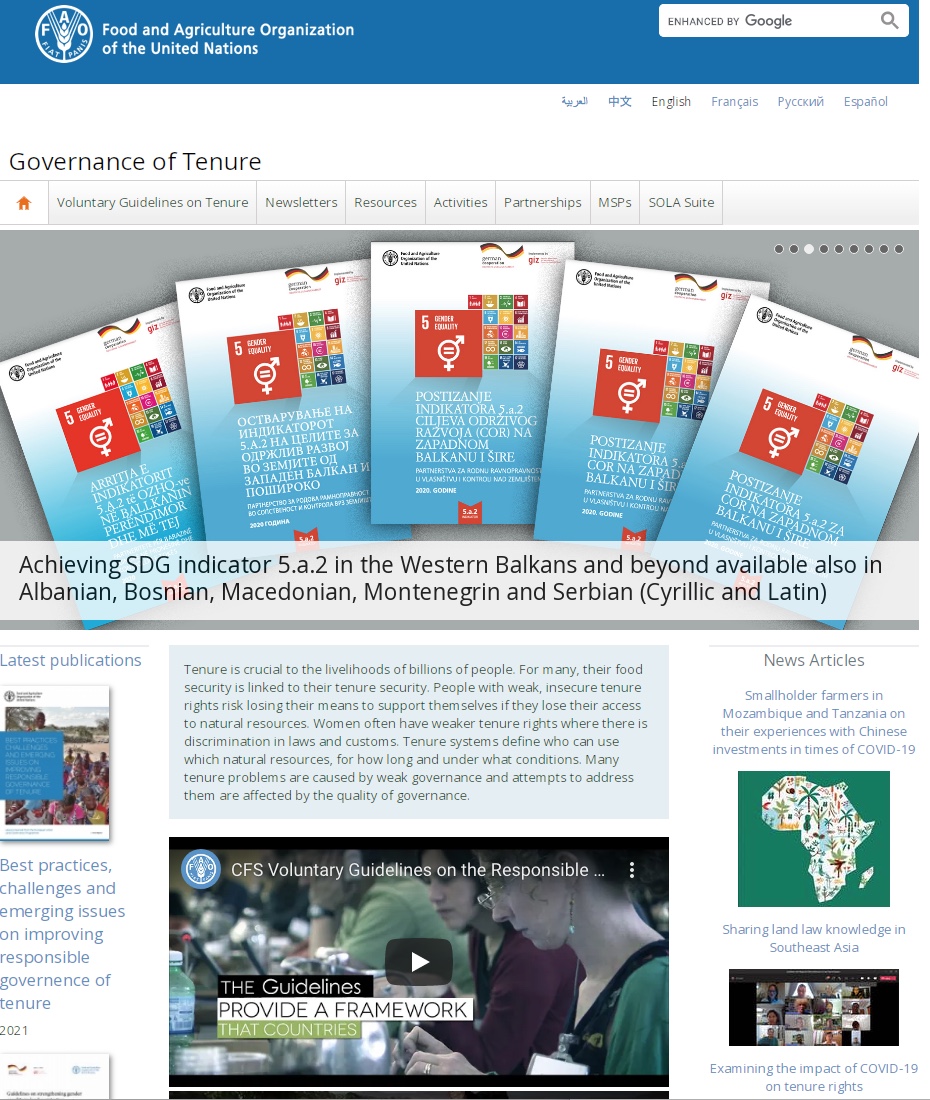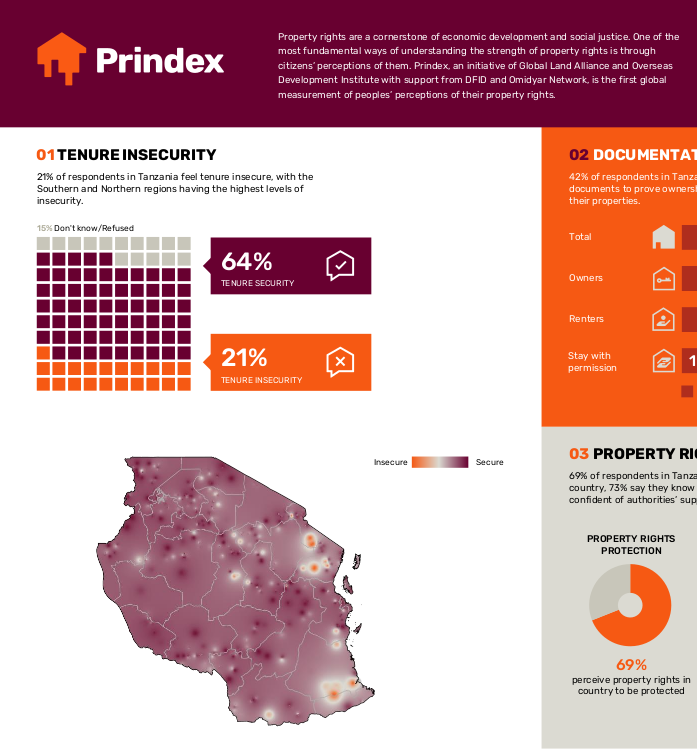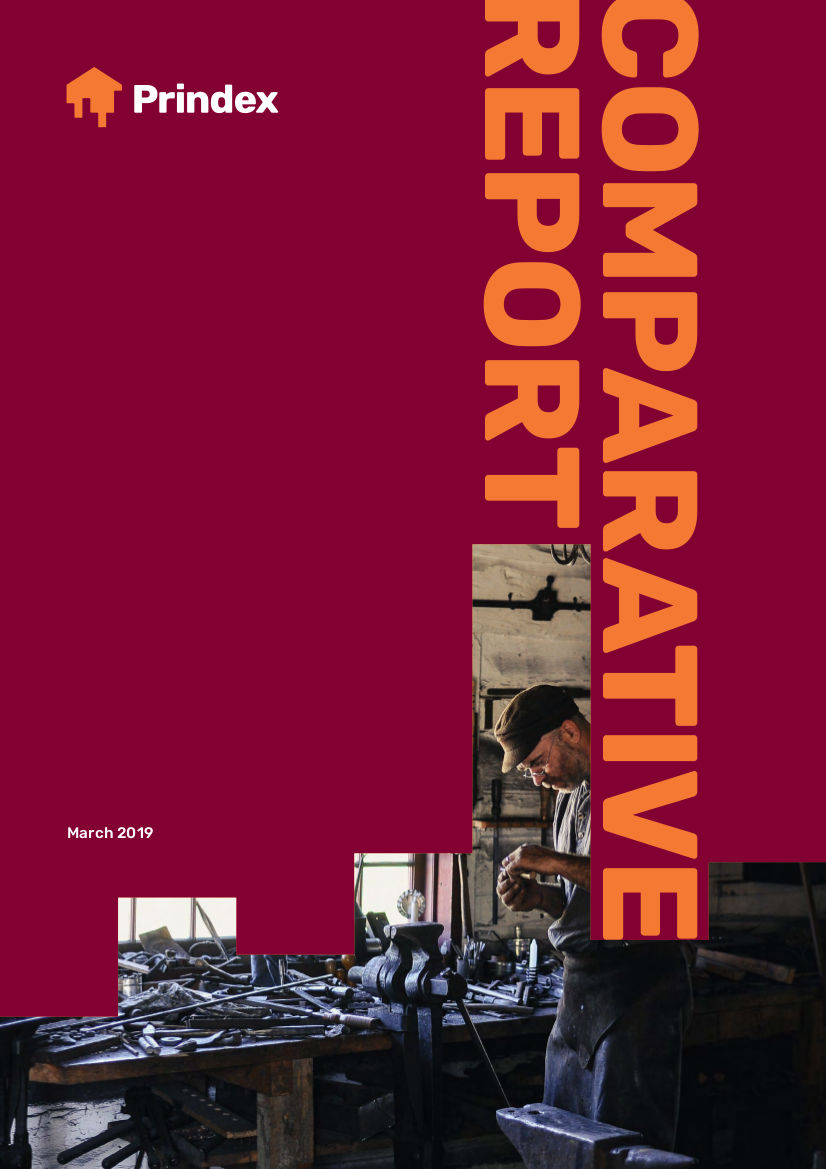VGGT: Monitoring the governance of land, fisheries and forests
The Tenure Guidelines aim to serve as a reference, providing guidance to improve the governance of land, fisheries and forests so that it can contribute effectively to securing the right to adequate food. The Guidelines thus constitute an internationally agreed upon normative standard that assesses the actions and omissions of states, UN agencies as well as international organisations with respect to the way they regulate land, fisheries and forests in specific situations. See box 1 below.












